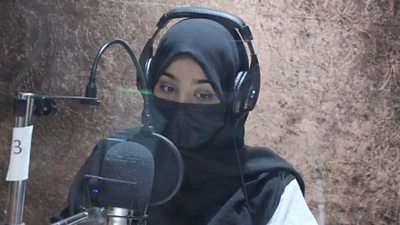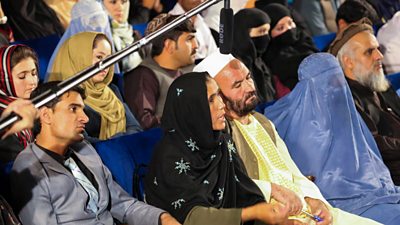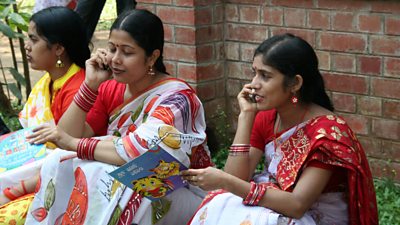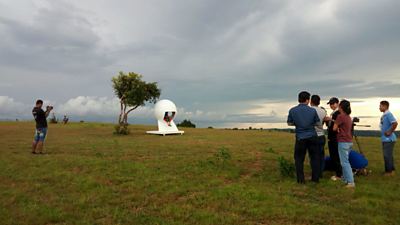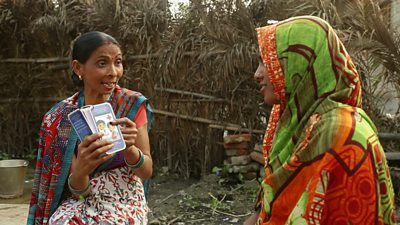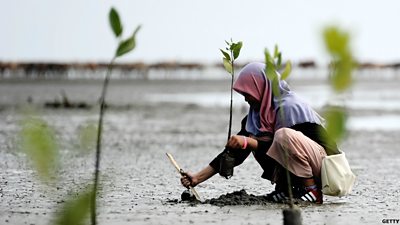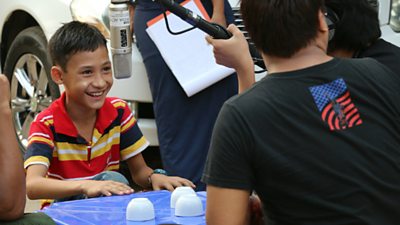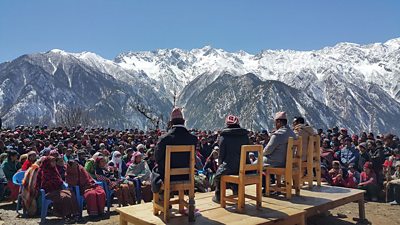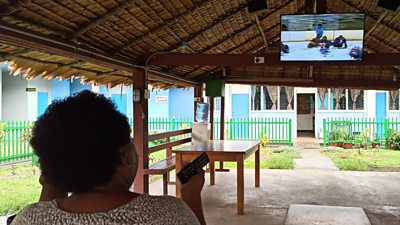Our mission is to make the voices of people heard.”
Women's lives have changed dramatically since the Taliban returned to power in 2021. They are now largely unable to travel freely on their own, to work in most jobs, to go to parks, salons, or gyms, or to pursue higher education.
But women are still allowed to work in the media and in health care – albeit with restrictions. And media now plays an even more important role in the lives of women in the country, who rely on radio, television and social media for information, entertainment and connection.
The Women’s Voice radio show is led by women, for women, at Radio TV Oboor, in the remote and conservative province of Badghis in the country’s far northwest.
In this clip, we hear from Nadia and Nasira, two female journalists working on the show.
We have been conducting Lifeline training with radio stations across Afghanistan, supporting them to reach their audiences with critical information on health, nutrition and other issues as the humanitarian crisis deepens.
In Badghis, we sare supporting these journalists to create programmes about ‘real life’ health problems and challenges that women experience in this remote region – ensuring women can access information about health issues from wherever they are, in a time when it can be hard for them to travel freely. Women at home can also call in to discuss their concerns with experts.
Women may not have access to television but have access to radio or mobile phones. In remote areas women can access these programmes they can contact us and share their concerns.”
Nasira says the two-day Lifeline programme training she received was very useful, as women in this conservative region have little access to health information and services. In the past, she said, the station's programmes were focused on stories of people’s lives and situations, rather than useful information.
Now that we have learned Lifeline programme making, we make programmes for people [not about people] - programmes that offer solutions for their problems. This can be very helpful and related to them.”
Nadia explains the topics they discuss are not provocative – they focus on pregnancy, mental health and other health issues, making sure to discuss each topic from all angles, including from a Sharia point of view.
We address issues in a moderate way so that it is not problematic for us and also manage to achieve our objectives.”
Despite taking steps to ensure they are within current directives, Nasira and Nadia’s work remains very challenging, particularly in this conservative province.
Late last year, �鶹�� Media Action conducted a media survey on Afghanistan to find out how people are accessing media and content since the Taliban returned to power. We found that women have been particularly hard hit by changes to media, both as contributors and as audiences. Our researchers also learned that media has become a lifeline as their main source of news and information, because of the increased limitations on their movement, at work and in education.
Lifeline programmes can be very useful. Many women in districts have not much knowledge, on issues like pregnancy when to see a doctor and self-care during pregnancy. They are facing problems.”
The Women’s Voice radio show is broadcast by Radio TV Oboor, one of several woman-led and woman-focused stations still active in Afghanistan. �鶹�� Media Action has been working with Radio TV Oboor and others on Lifeline training and building journalistic skills, through a project funded by the Foreign, Commonwealth and Development Office.
Our projects in Afghanistan
-
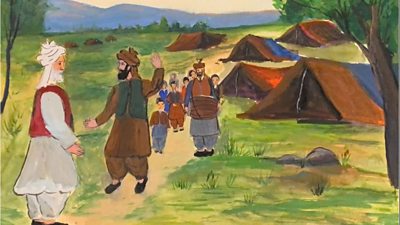
'See it, avoid it, report it' - our work on mine awareness
Young boys are the most frequent casualties of explosive ordnance in Afghanistan - our drama and discussion programmes may help save their lives. -
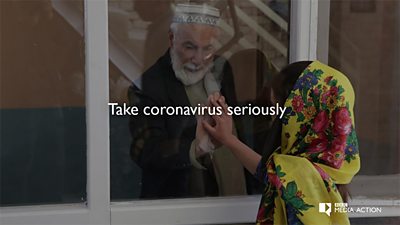
'Hello hope': Why COVID-19 communication is critical in Afghanistan
Learn more about our work with media and communication to help prevent the spread of COVID-19 among nomadic groups in Afghanistan. -
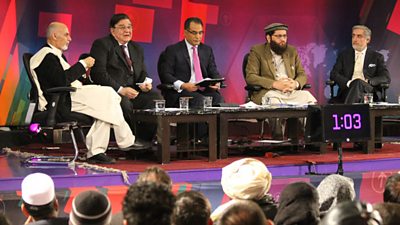
Afghanistan's Open Jirga
The TV and radio debate programme aims to enable dialogue between Afghans and their leaders.
